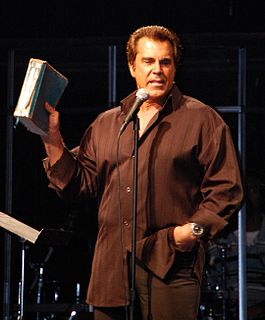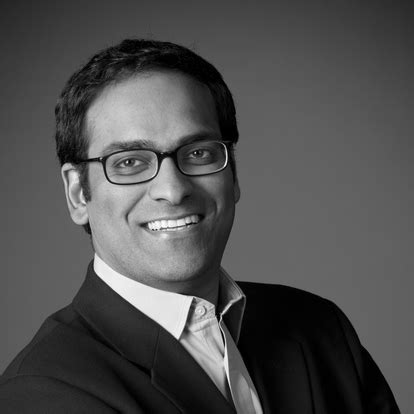A Quote by Adolf Hitler
We are a people of different faiths, but we are one. Which faith conquers the other is not the question; rather, the question is whether Christianity stands or falls.... We tolerate no one in our ranks who attacks the ideas of Christianity... in fact our movement is Christian. We are filled with a desire for Catholics and Protestants to discover one another in the deep distress of our own people.
Related Quotes
We Protestants automatically assume that the Pharisees are the Catholics. They are the self-righteous people who have made Christianity a form of legalistic religion, thereby destroying the free grace of the Gospel. We Protestants are the tax collectors, knowing that we are sinners and that our lives depend upon God's free grace.
There is a reason Christianity is violently opposed in our world while other religions and philosophies are tolerated... Biblical Christianity evokes violent responses from some people, because only in Christianity is there an absolute right and wrong. People hate the Bible and Christianity because of the law of God.
As for Christianity's alleged concern with truth, Christian faith is to free inquiry what the Mafia is to free enterprise. Christianity may be represented as a competitor in the realm of ideas to be considered on the basis of its merits, but this is mere disguise. Like the Mafia, if Christianity fails to defeat its competition by legitimate means (which is a forgone conclusion), it resorts to strong-arm tactics. Have faith or be damned - this biblical doctrine alone is enough to exclude Christianity from the domain of reason.
If the Christian church is to move responsibly towards the future, it must restore or renew its ties with its past. Contemporary Catholic and Protestant radicals want to claim that Christianity means whatever Christian today happen to believe and practice, be it pantheism, unitarianism, or sodomy. The Christian faith has suffered immeasurable harm because of the tendency of people to use the word Christian in a careless and non-historical way. Nothing in this argument would preclude liberal Protestants and Catholics from developing and practicing any religion they like.
There is one notable thing about our Christianity: bad, bloody, merciless, money-grabbing and predatory as it is - in our country particularly, and in all other Christian countries in a somewhat modified degree - it is still a hundred times better than the Christianity of the Bible, with its prodigious crime- the invention of Hell.
Therefore, this is a question of whether we, humans, can change our culture and begin to truly care for all Creation, nurture all Life and thereby avert our own extinction. As such, this is a deeply spiritual issue and we can begin to act today, regardless of age. But the good news is that this is not a question of whether we will change our culture, but a question of when.
It's no understatement that the church has done a poor job in teaching our young people that reason and faith are not opposites, and that atheists are far from being on the side of reason. You can find on our website a chart which I use to demonstrate the various worldviews work out, and which one, Christianity, is rational. Many kids, however, who grow up huddled in a Christian environment find themselves in the university setting completely unequipped to defend the rationality of the Christian faith against the secular humanist worldview so prevalent on college campuses.
There are hard texts in each tradition which we must confront and ask ourselves, 'Can we reinterpret those texts to allow us to live peaceably, and respectfully, with people of other faiths?' That is a job only Jews can do for Judaism, only Christians can do for Christianity, and only Muslims can do for Islam. But sometimes the sight of someone in one faith wrestling with that faith can empower you to wrestle with another faith.
... All questions concerning the rise of Christianity are one: How was it done? How did a tiny and obscure messianic movement from the edge of the Roman Empire dislodge classical paganism and become the dominant faith of Western civilization? Although this is the only question, it requires many answers - no one thing led to the triumph of Christianity.
Wondering whether Christianity is real is not the same as wondering whether Christianity is true. If you question the truth of Christianity, you can do something tangible about it. You can read books, take a class, or talk to someone about it. But what can you do when you're already convinced it's true but don't experience it as real?
When one gives up the Christian faith, one pulls the right to Christian morality out from under one's feet. This morality is by no means self-evident. Christianity is a system, a whole view of things thought out together. By breaking one main concept out of it, the faith in God, one breaks the whole. It stands or falls with faith in God.
Because we are rooted in a generous Christian heritage, we are eager to collaborate with people of other faiths, and those seeking the common good. Our networks of dialogue and action thus extend beyond Christian communities to persons of all faiths, as well as to communities that are not themselves faith-based. We welcome allies and allegiances wherever we find common cause.
Question of "Where We Begin" turns to be not only a formal question but also a question central to the attempt to make sense of things about which it is very difficult to make any sense - illness, death, despair, suicides, cruelty, the various troubles love can provoke, our inability to really know one another when we our inner selves are walled off by our bodies.












































